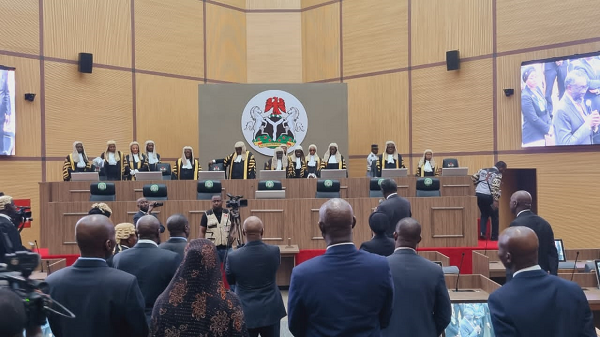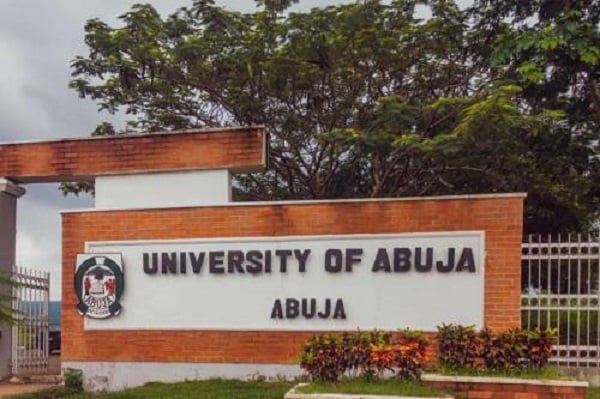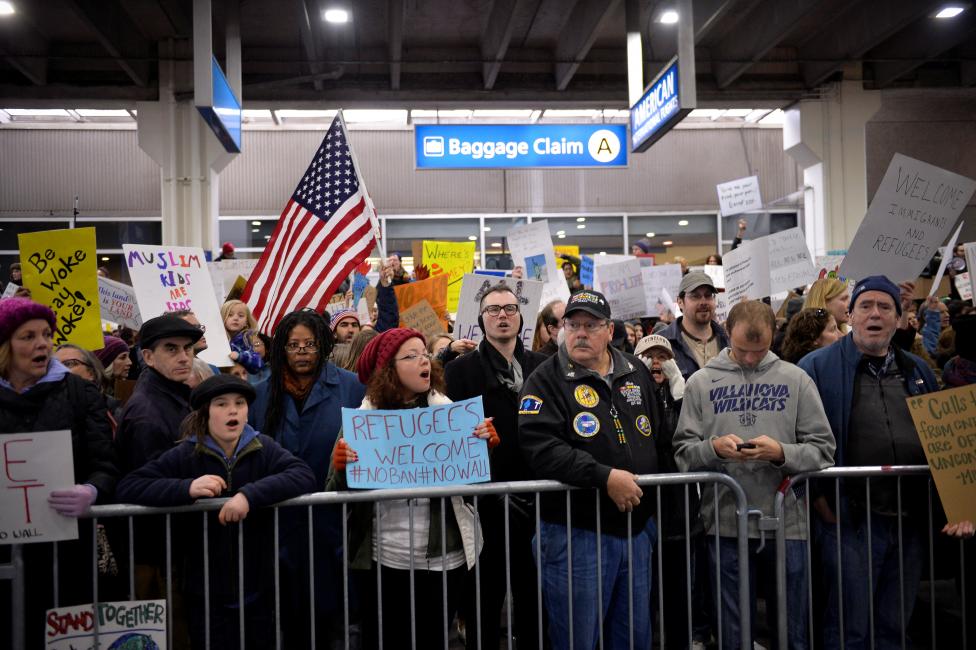BY OLANREWAJU S LAWAL
This paper is written pursuant to section 39 of the CFRN [1999 as amended] which provides for the right of expression, this includes imparting ideas and information on matters of public interest.
I write to express my sincere and succinct legal opinion on the suit filed before the Supreme Court of Nigeria by Kogi state and 15 others to address some legal issues and its impact on fight against corruption in Nigeria.
As barrister and solicitor of the Supreme Court of Nigeria, practicing at Amicus-Juris Legal Practitioners which is a dynamic and established law firm, comprising highly skilled professionals with deep interest in using our expertise to support the rule of law in Nigeria and beyond. This paper is further to our committment to impacting and educating the public on legal matters that are of the overriding public interest.
Advertisement
Background
As part of the society, I have read on various media platforms about the news of the recent suit captioned above, filed by the attorney-general of 16 states of the federation before the supreme court. The suit is challenging the constitutional powers of the national assembly to establish the Economic and Financial Crimes Commission (EFCC) and the NFIU, and by extension, the powers of these agencies to investigate and prosecute matters related to the misappropriation of state funds.
Having carefully examined the suit from the news, I am of the firm opinion that this action is legally frivolous and constitutes an abuse of judicial process, as the issues raised have already been conclusively determined by the supreme court in landmark cases. The suit is a clever ploy by those states to relitigate the matter through the back door and weaken the powers of the EFCC and the sister federal agencies. I highlight my position in this paper.
1. Established supreme court precedents/ stare decisis
Advertisement
We submit that the Supreme Court of Nigeria has already addressed and settled the questions raised in this suit in two key decisions:
Olafisoye v. FRN (2004) 4 NWLR (Pt. 864) 580
The supreme court in this case affirmed the powers of the national assembly to establish the agencies like EFCC and ICPC to investigate and prosecute corruption-related offenses. The court held that corruption, particularly in the management of public funds, is a matter of national concern, thus falling within the legislative competence of the national assembly as provided in the constitution under the Exclusive Legislative List.
Attorney General of Ondo State v. Attorney General of the Federation (2002) 9 NWLR (Pt. 772) 222
Advertisement
The issue of whether the national assembly could establish agencies like the ICPC to fight corruption at the state level was addressed by the supreme court in this case. The supreme court held that the national assembly has the power to legislate on matters relating to corruption under the exclusive legislative list, particularly under Items 60(a) and 68 of the constitution. It further held that the anti-corruption framework must be uniform across the federation to ensure effective governance and accountability.
I humbly submit that these two decisions remain binding as they have not been overturned or revisited by the supreme court. Hence, any attempt to re-litigate these settled issues can be considered vexatious and an abuse of court process.
2. Legislative authority of the national assembly
The supreme court held in the attorney-general of Ondo state [supra] that “national assembly has the sole power for the establishment and regulation of authorities for the federation or any part thereof so as to promote and enforce the observance of the nation’s responsibility to abolish all corrupt practices and abuse of power [which fall under the Fundamental Objectives and Directive Principles of State Policy in section 15(5)” of the 1999 CFRN.
Advertisement
Consequently, the Constitution of the Federal Republic of Nigeria, 1999 (as amended), provides that the national assembly has exclusive legislative authority over certain matters. Section 4(2) confers on the national assembly the power to legislate for the peace, order, and good governance of the federation with respect to matters enumerated in the Exclusive Legislative List.
For clarity, Per Uwaifo, JSC in the same case reported in [2002] All FWLR [P. 2146, paras- E-H] held as follow: “It is to all intent and purposes now a subject-matter coming within item 60(a) in form of Abolition of al corrupt practices and abuse of power which, although not expressly so spelt out… It is an aspect of good government of the Federation that there should be no corrupt practices and abuse of power; and that is a central element of the power conferred on the national assembly under section 4(2) and (3) of the constitution to make laws for the peace, order and good government of the Federation with respect to matter included in the Exclusive Legislative List. In addition, under section 4(4)(b), the national assembly is given power to make laws with respect to ‘any other matter with respect to which it is empowered to make laws in accordance with the provisions of this Constitution’…. It is declared State Policy in Nigeria to combat it and so it has assumed a national issue of high priority which is considered best suited for the National Assembly to be addressed through a federal agency like the ICPC.”
Advertisement
I submit that corruption, being a national issue of critical importance, the establishment of agencies like ICPC, NFIU and EFCC falls exclusively under the legislative competence of the national assembly. Item 60(a) of the Exclusive Legislative List empowers only the national assembly to establish bodies for the promotion and enforcement of standards aimed at preventing and detecting corruption. Furthermore, Item 68 extends the national assembly’s authority to legislate on matters incidental or supplementary to any item in the list.
The supreme court made it clearer in those cases that the states can only legislate on creation of crimes and only the national assembly is constitutionally empowered to establish agencies, such as the EFCC and ICPC, to combat corruption and related offences across the country, including at the state level.
Advertisement
In other words, both house of assembly of states and the national assembly can concurrently legislate on criminal laws such as creation of offences relating to misappropriation of funds and abuse of office. There powers co-exist in this regards but only the national assembly that has the legislative competence to create and establish any agency or body for the promotion and enforcement of laws relating crimess of corruption and abuse of office.
In re Olafisoye [supra] the supreme put it clearer what is meant by concurrent and exclusive powers of both the federal government and the state governments such in this case.
Advertisement
For clarity, the supreme court put it clearly as follow: “What is meant when a matter is said to be concurrent to federal and state government is that their powers in respect of it exist side by side together. In other words, the powers of both governments in respect of the matter are co-existence, not mutually exclusive; the power of one does not exclude that of the other. Both government can, in theory at least, act on the matter. But their powers need not necessarily be co-extensive in the sense of extending over the entire field of the matter; they may co-exist only in respect of some aspects of it. [see P. 1160, paras G – H]”
Again, what the supreme court is saying above is simple, that is, the powers of the federal and state government in relation to the creation of offence of corruption and related matters through statutory laws are concurrent.
However, the legislative powers of the state does not extend to, or “co-exist” in relation to the creation of agencies or bodies to enforce those law, it is exclusive for the national assembly. The state government can only have this powers if the constitution is amended to that effect.
I hereby submit that all the laws of the state governments that creates anti-corruption agencies like EFCC are ultra vires. In other words, it only the Act of the national assembly that is intra vires in that aspect but the house of assembly of those states have acted outside their legislative powers.
3. Public policy implications
Corruption in Nigeria is a pervasive issue that transcends individual state boundaries and affects the entire nation. Allowing each state to independently manage investigations and prosecutions relating to corruption, particularly in the management of public funds, would lead to inconsistency in the enforcement of anti-corruption laws. This could result in weakened accountability mechanisms and the possible undermining of the anti-corruption agenda.
The establishment of the EFCC and ICPC by the national assembly ensures that there is a uniform and coordinated approach to tackling corruption across the federation. Any attempt by the states to resist the investigative and prosecutorial powers of these agencies would weaken the rule of law and impair the fight against corruption, which has been recognised as one of the root causes of underdevelopment in Nigeria.
4. Potential sanctions by the supreme court
As I have submitted above, it is pertinent to reiterate that the issues raised in this suit have been previously adjudicated by the supreme court. The principle of stare decisis, which is central to the administration of justice, mandates that lower courts and even the supreme court itself must follow its earlier decisions unless there are compelling reasons to depart from them. Th previous judgment was declaratory, and interestingly states like Ondo state was a party to the previous suit and the current suit.
The filing of this suit, despite the clear precedents set by the supreme court in Olafisoye and AG Ondo v. AGF [supra], may be viewed as an attempt to re-litigate settled matters. This constitutes an abuse of court process. It is within the inherent powers of the supreme court to impose sanctions on the attorneys general of the 16 states for bringing such a frivolous suit, which serves no purpose other than to waste judicial time and resources.
Conclusion
In conclusion, I vehemently submit that the suit brought by the 16 states challenging the powers of the national assembly to establish the EFCC and ICPC is without merit. The national assembly, acting within its constitutional powers, has the authority to legislate on matters concerning corruption, and the establishment of anti-corruption agencies like the EFCC and ICPC is a valid exercise of that authority.
The decisions of the supreme court in Olafisoye and AG Ondo v. AGF remain binding, and any attempt to revisit these issues is an abuse of court process. It is my recommendation that the supreme court dismisses this suit and considers appropriate sanctions against the states’ attorney generals for filing such a frivolous action.
Recommendation
Counter-suit against state anti-corruption agencies and the doctrine of covering the field
In addition to defending the powers of the national assembly and the legitimacy of the EFCC and ICPC, I recommend that this development presents a crucial opportunity for the EFCC, ICPC, and NFIU to file a counter-suit, through the Office of the Attorney General of the Federation (AGF), challenging the legislative power of states to create their own anti-corruption agencies, as seen in Lagos, Kano, and Oyo states.
I submit that the creation of similar agencies at the state level is a clear violation of the doctrine of covering the field, which applies when the national assembly has legislated comprehensively on a subject, leaving no room for states to legislate in that area.
Since the national assembly has already legislated on anti-corruption matters through the EFCC and ICPC Acts, and these laws were intended to apply uniformly across Nigeria, the creation of state anti-corruption agencies is inconsistent with the national legislative framework and violates constitutional principles [there are plethora of supreme court’s decision supporting this position].
Allowing states to legislate on anti-corruption independently undermines the federal structure and creates a risk of fragmented enforcement, which would weaken the fight against corruption. A countersuit relying on the doctrine of covering the field would ensure that the EFCC and ICPC maintain their exclusive mandate to tackle corruption and abuse of office nationwide, without interference from inconsistent state-level agencies.
I would be happy to provide further clarifications on any of the issues raised in this opinion, and I remain available for further discussions or consultations on this matter.
Olanrewaju S. Lawal is a managing partner at Amicus Juris LP. Connect with him via [email protected]
Views expressed by contributors are strictly personal and not of TheCable.








